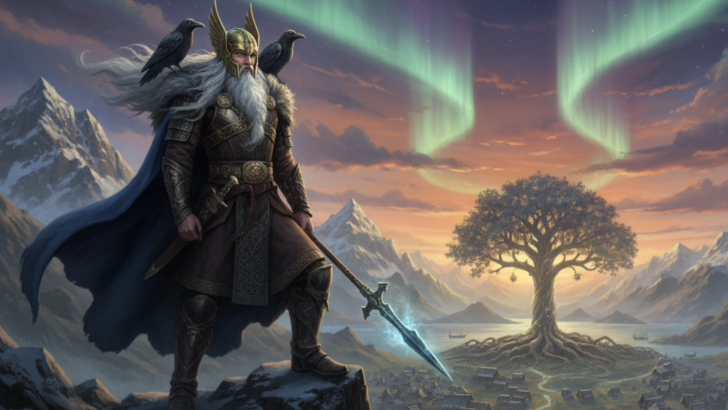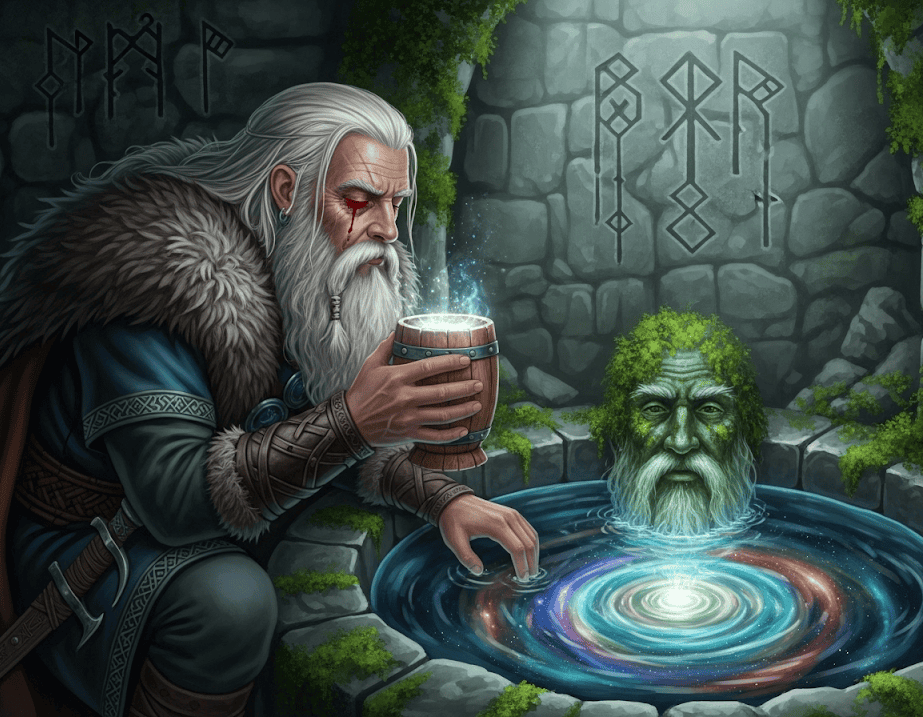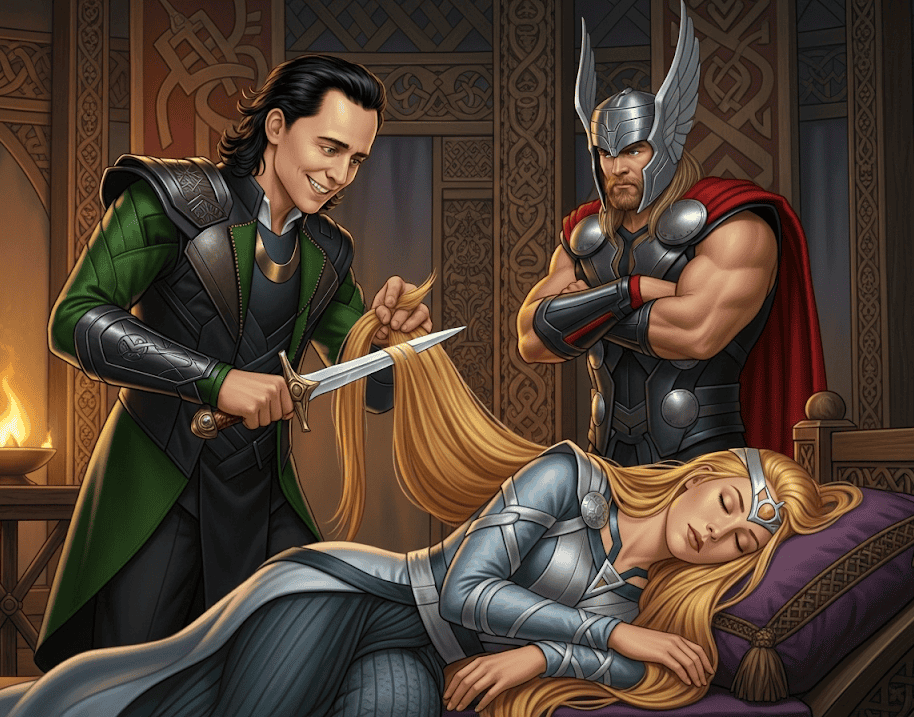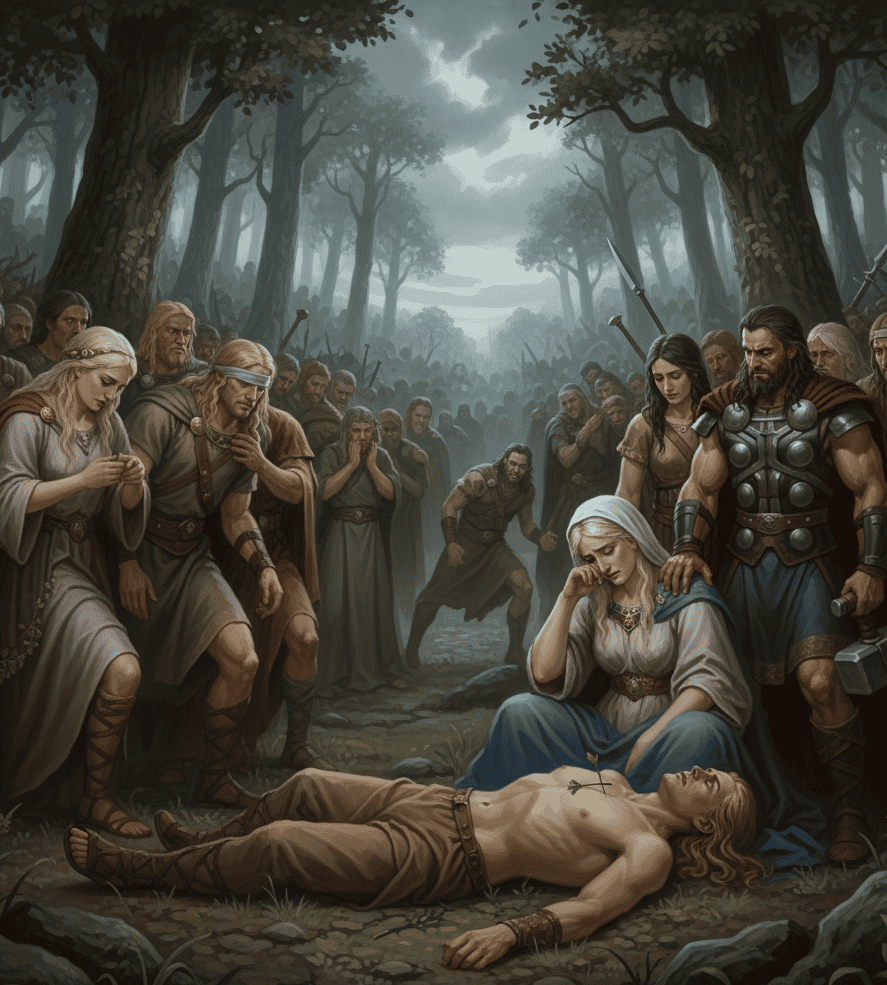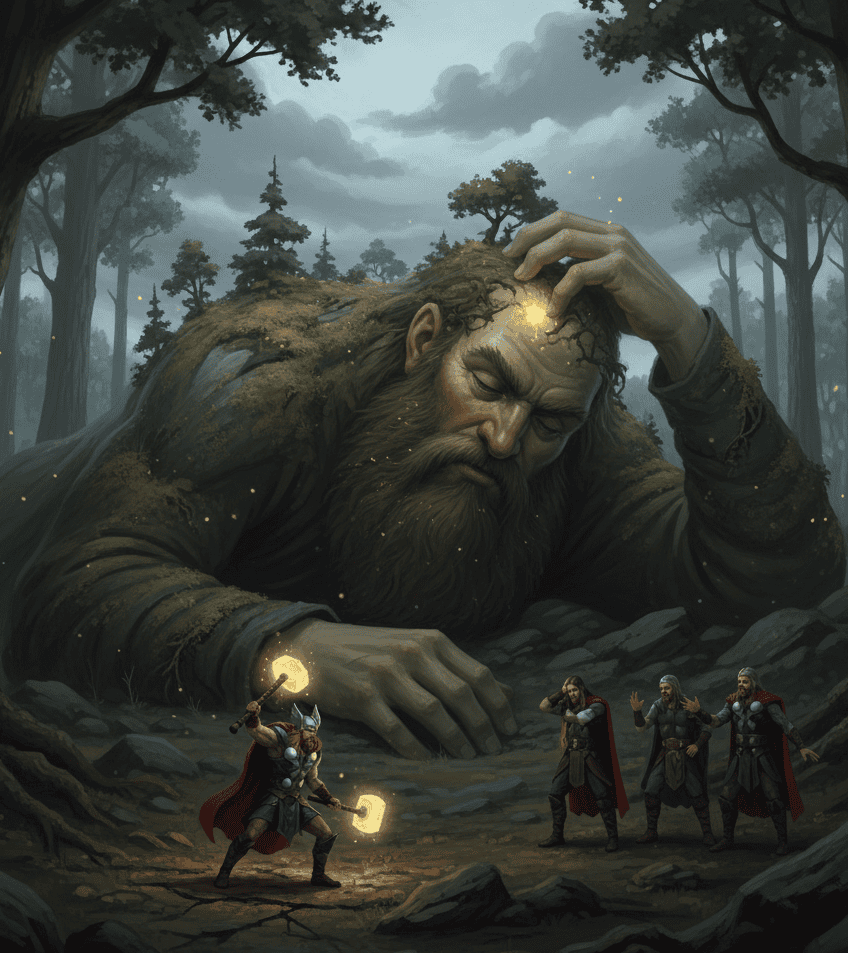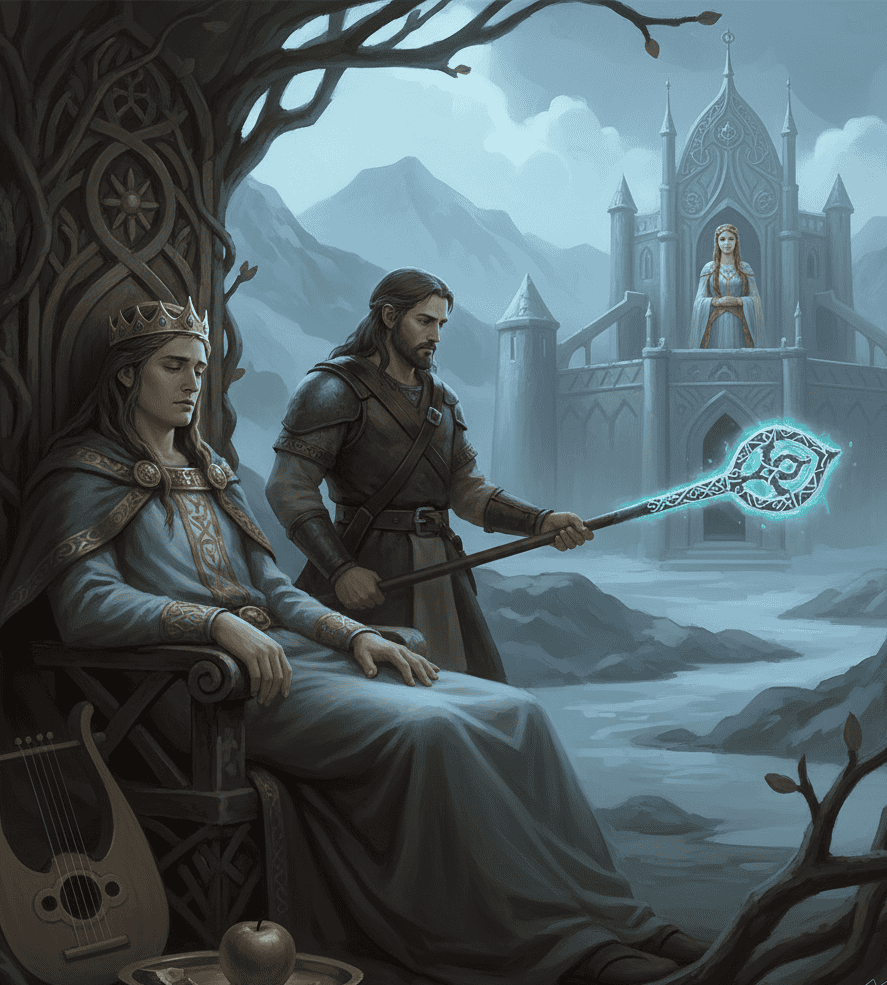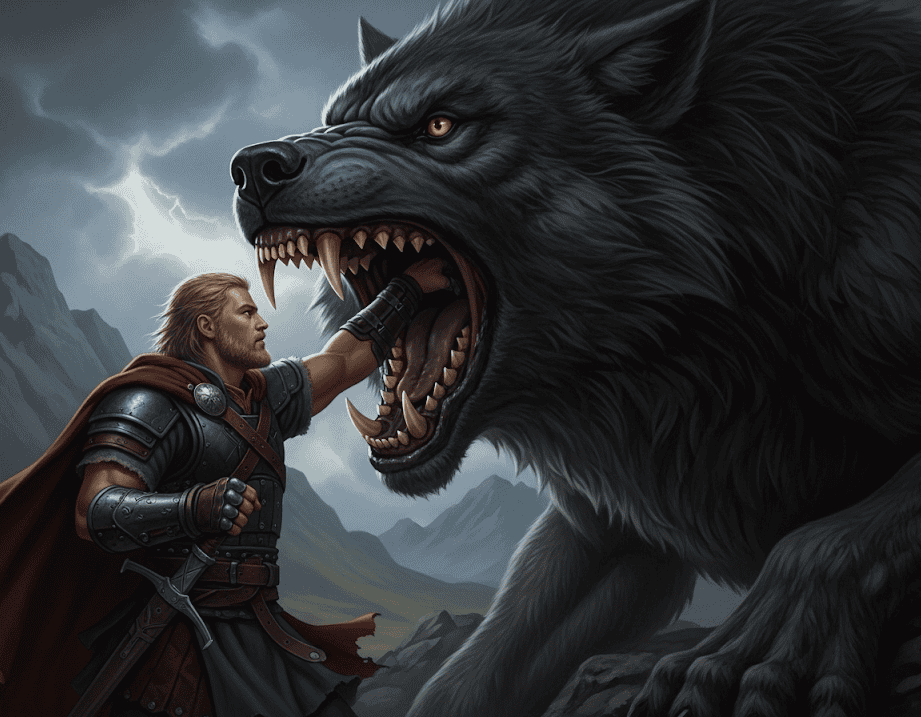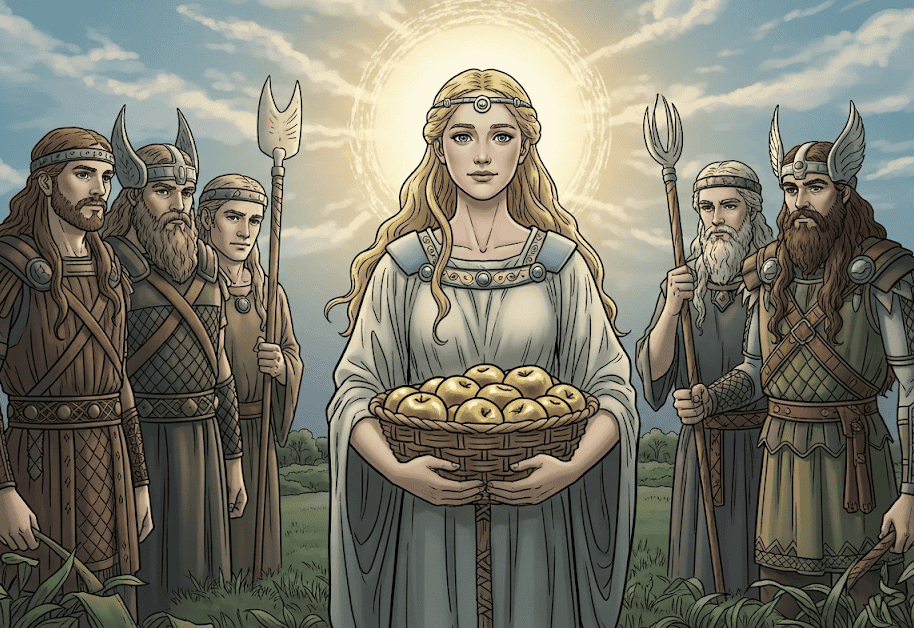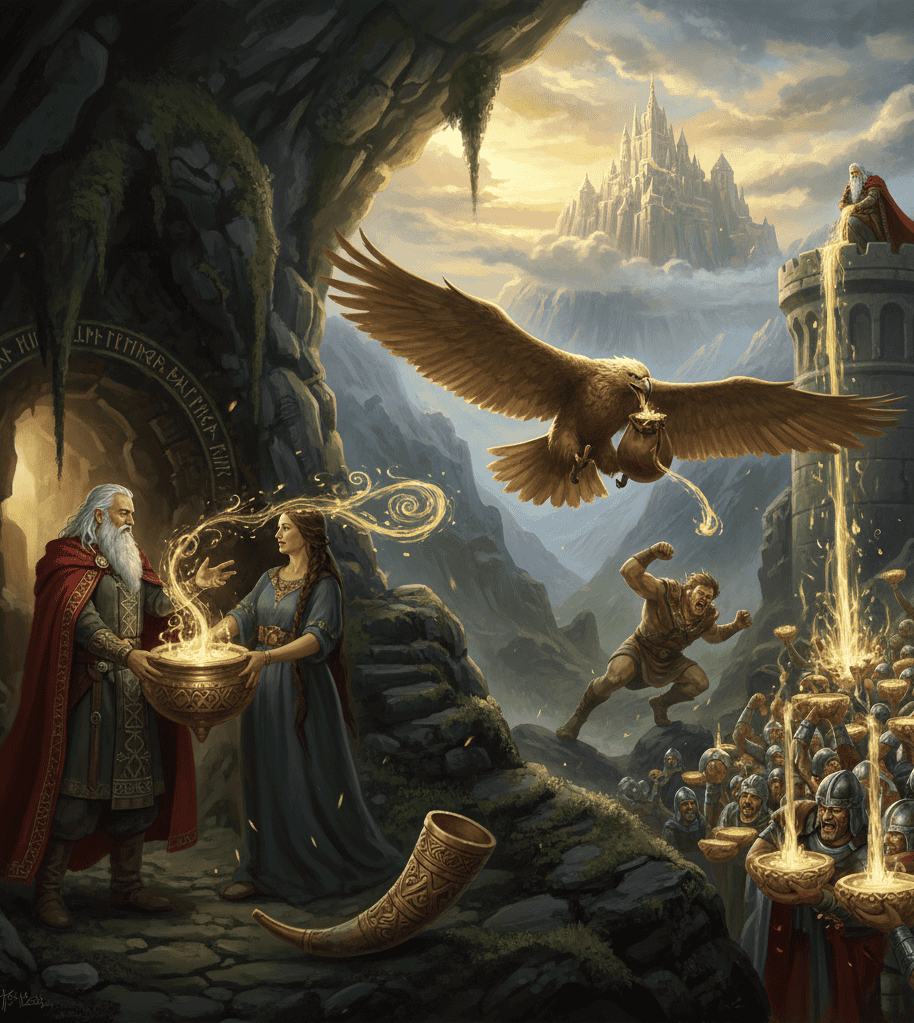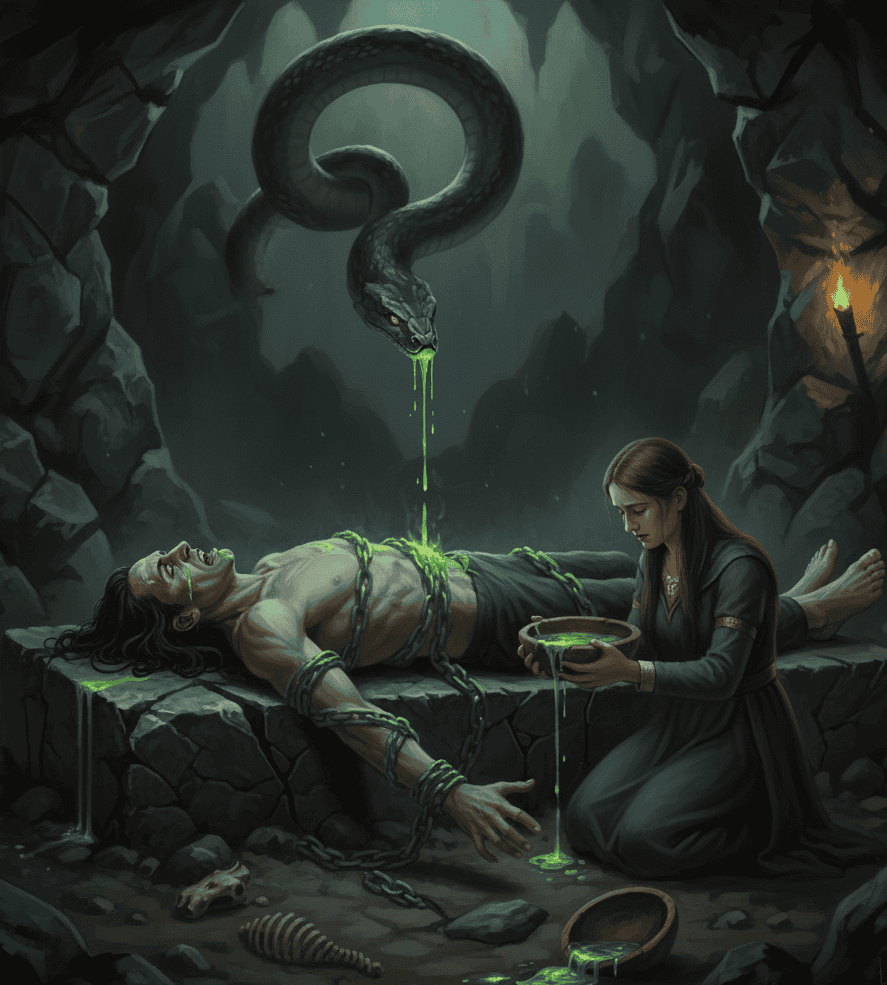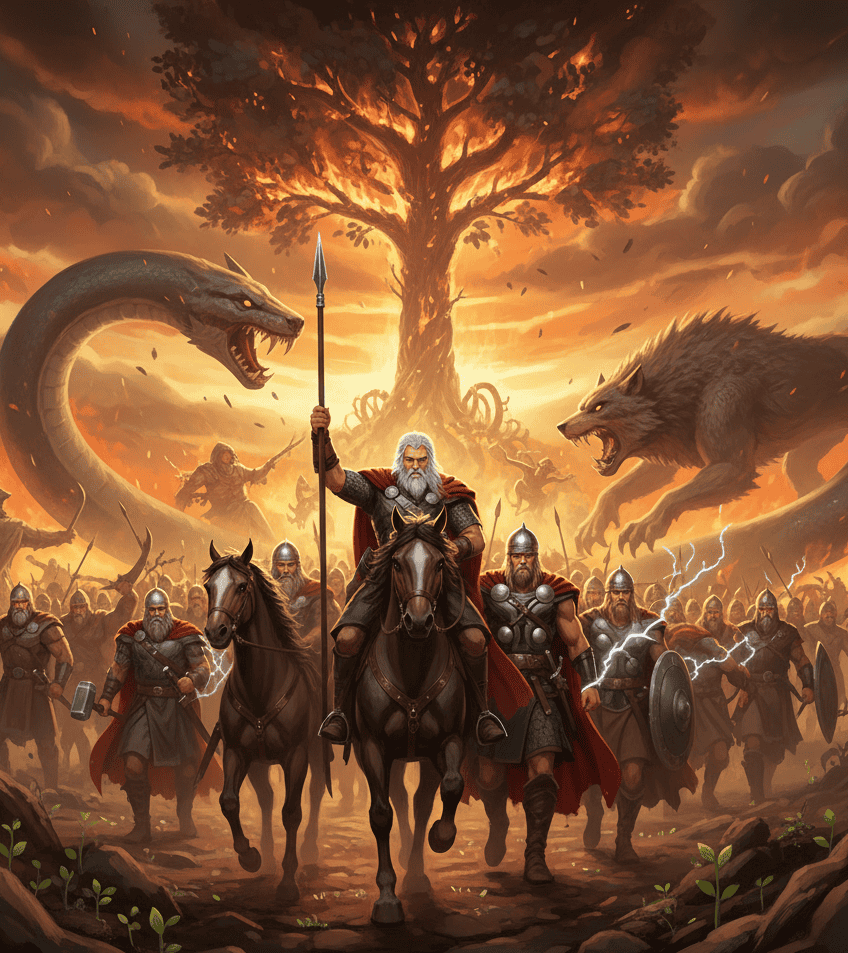Norse mythology is usually remembered for thunderous battles, icy giants, and heroic sagas.
Yet hidden in those dramatic tales are lessons about feelings, choices, and relationships that remain surprisingly relevant today.
Emotional intelligence is not a modern invention. Long before psychology gave us the term, ancient stories already explored empathy, self-awareness, and the struggles of keeping emotions in balance.
The gods and heroes of the North made plenty of mistakes, and each tale shows how understanding emotions could shape destinies.
Here are ten Norse myths that still inspire us to grow emotionally wise.
1. Odin’s Sacrifice for Wisdom
Odin, the Allfather, once gave up an eye to drink from Mimir’s well of wisdom. Later, he hung on Yggdrasil, the world tree, pierced by his own spear, to gain knowledge of the runes.
These sacrifices reveal a deep truth about emotional intelligence: awareness requires effort and even discomfort.
Odin teaches us that true wisdom is not free. To understand yourself and others, you sometimes need to give up pride, comfort, or certainty.
The lesson is about valuing growth over convenience and knowing that wisdom often emerges when you are willing to endure challenges.
2. Loki’s Trickery and Consequences
Loki is clever, mischievous, and sometimes downright cruel. His tricks often begin as playful or useful but spiral into chaos when he ignores the emotions of others.
The story of cutting off Sif’s golden hair, Thor’s wife, is one example. Loki thought it was funny until Thor’s anger forced him to fix his mistake by acquiring treasures from the dwarves.
This myth shows how ignoring the feelings of others can backfire. Emotional intelligence means understanding how your actions affect people.
Loki reminds us that cleverness without empathy is hollow and that true wit includes knowing when to stop before harm is done.
3. Baldr’s Death and Frigg’s Grief
Baldr, the shining god loved by all, was killed when Loki tricked Hodr into throwing a mistletoe dart.
His mother Frigg had tried to protect him by asking every living thing not to harm him, but she overlooked mistletoe. When Baldr died, the entire cosmos mourned.
This story embodies empathy and grief. It shows that even gods cannot shield their loved ones from every pain.
Frigg’s sorrow reveals the depth of maternal love and the vulnerability of attachment. Emotional intelligence here is about accepting that love involves risk and that grieving is an honest and necessary part of life.
4. Thor and the Giant Skrymir
In one tale, Thor and his companions traveled with a giant named Skrymir. Thor repeatedly tried to strike the sleeping giant with his hammer, but Skrymir only complained of small disturbances.
Eventually, Thor realized he had been deceived and humbled. This myth highlights frustration and humility.
Thor, known for strength, learned that raw power does not solve every problem. The story encourages us to manage anger, recognize limits, and admit when we are outmatched.
Emotional intelligence means knowing when strength must give way to patience.
5. Frey and Gerðr’s Courtship
Frey, the god of fertility and prosperity, fell deeply in love with the giantess Gerðr. He became heartsick, unable to eat or drink, until he sent his servant Skírnir to woo her on his behalf.
Gerðr eventually agreed to meet Frey after much persuasion and bargaining. This myth reflects the emotional vulnerability of love.
Frey’s longing and despair show that even gods are overwhelmed by desire. It teaches us about acknowledging feelings honestly.
It’s also hinting at the importance of boundaries, since Gerðr’s consent was central to the union. Emotional intelligence here is about respecting both passion and personal choice.
6. Tyr’s Sacrifice for Trust
When the gods needed to bind the monstrous wolf Fenrir, only Tyr, the god of war and justice, had the courage to place his hand in the wolf’s mouth as a pledge of good faith.
When Fenrir realized he had been tricked, he bit off Tyr’s hand. This story is about loyalty and the painful cost of trust.
Tyr showed emotional strength by accepting personal sacrifice for the good of all. Emotional intelligence includes the ability to weigh the greater good against personal risk and to understand that trust requires vulnerability.
7. Idunn and the Apples of Youth
Idunn kept the golden apples that gave the gods eternal youth. When Loki helped a giant kidnap her, the gods began to wither.
Only after rescuing Idunn did vitality return to Asgard. The myth reveals how much others depend on her quiet role.
Idunn teaches us to honor those who keep life balanced. This tale shows the value of caretakers and the emotions tied to gratitude.
Emotional intelligence here is about recognizing the importance of people who provide nourishment and stability, even if their work is often unseen.
8. The Mead of Poetry
Odin once sought the Mead of Poetry, a magical drink that gave the gift of eloquence and inspiration. To obtain it, he had to transform into various shapes, charm a giantess, and finally escape as an eagle.
The mead became a symbol of creative expression. This myth highlights the emotional intelligence behind communication. Odin’s quest reminds us to use words responsibly.
Words can heal, inspire, and connect, but they require careful use. The story teaches us that eloquence is not just about speaking but about reaching into emotions and touching hearts.
9. The Binding of Loki
After Baldr’s death, the gods punished Loki by binding him to a rock with the entrails of his son, placing a serpent above his head to drip venom on him.
His wife Sigyn stayed beside him, catching the venom in a bowl, but when she emptied it, the drops that hit Loki caused him to writhe in agony, shaking the earth with earthquakes.
This myth reveals the emotions of loyalty and compassion. Despite Loki’s cruelty, Sigyn’s devotion never wavered.
Emotional intelligence here is about supporting loved ones even in dark times, and recognizing the power of empathy to ease suffering, even if it cannot remove it entirely.
10. Ragnarök and the Courage to Face Endings
The prophecy of Ragnarök tells of the destruction of the gods, the giants, and the world itself. Odin, Thor, and many others know their fate yet they march into battle anyway.
They face certain loss with courage and dignity, aware that renewal will follow. This myth embodies resilience and acceptance.
Emotional intelligence here means facing fear, grief, and inevitable change with calm strength. Even when everything ends, the willingness to act with purpose remains a profound lesson in courage.

自出生以来,我一直感觉到自己与神灵有着紧密的联系。作为一名作家和导师,我的使命是帮助他人在最黑暗的时刻找到爱、幸福和内心的力量。

